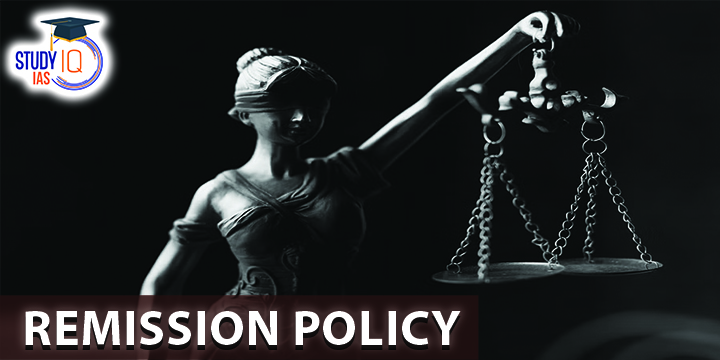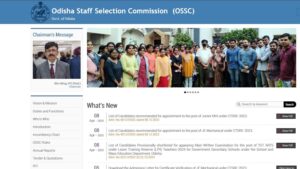Table of Contents
Remission Policy History: Release of Bilkis Bano Case Convicts
- One of the convicts in the case had approached the Gujarat and Bombay High courts for premature release as he had served 14 years in prison and was eligible for remission.
- After the petitions were dismissed, he approached the Supreme Court. The Court observed that application for premature release would be considered as per the rules as they stood on the date of conviction.
- Supreme Court directed the Gujarat government to consider his application for remission as per the 1992 policy of the state government.
- The policy allowed early release of the life convicts who on and after December 18, 1978, have served out 14 clear years imprisonment.
- Based on the advice, the Gujarat government constituted a 10-member jail advisory committee. The committee recommended remission based on their reformed nature.
Remission Policy India: Special Remission Scheme
- As part of the ‘Azadi Ka Amrit Mahotsav’ celebrations, the special remission would be granted to a certain category of prisoners in three phases — August 15, 2022, January 26, 2023 and August 15, 2023.
- Eligibility:
- Women and transgender convicts of 50 years of age and male convicts of 60 years. They should have completed 50% of their total sentence period without counting the period of general remission earned.
- Physically challenged/disabled convicts with 70% disability and more who have finished 50% of their total sentence period.
- Poor or indigent prisoners who have completed their sentence but are still stuck in jail due to non-payment of fine imposed.
- Convicted prisoners who have completed two-thirds (66%) of their total sentence period.
- Terminally ill convicts.
- Individuals who committed an offence at a young age (18-21 years of age) and with no other criminal case against them and who have completed 50% of their sentence period would also be eligible for the remission.
- Their age should be determined based on the matriculation or birth certificate. In the absence of both, the age provided in the judgment of the trial court could be taken into consideration.
- Ineligible prisoners:
- Individuals convicted with death sentence or where death sentence has been commuted to life imprisonment would not be eligible for the grant of special remission.
- Persons convicted for an offence for which punishment of death has been specified as one of the punishments are also not eligible.
- Individuals convicted under Terrorist and Disruptive (Prevention) Act, 1985, Prevention of Terrorist Act, 2002, Unlawful Activities (Prevention) Act, 1967, Explosives Act, 1908, National Security Act, 1982, Official Secrets Act, 1923, and Anti-Hijacking Act, 2016, would be ineligible.
- Persons convicted for dowry death, offence of rape & human trafficking, offences under Protection of Children from Sexual Offences (POCSO) Act, 2012 are not eligible.
- Persons convicted in Immoral Trafficking Act, Prevention of Money Laundering Act, Foreign Exchange Management Act, Black Money (Foreign Income and Assets) and Imposition of Tax Act, Narcotic Drugs Psychotropic Substances (NDPS) Act, Weapons of Mass Destruction Act, Prevention of Corruption Act, offences against the State (Chapter-VI of IPC) are not eligible.
Union Governments Remission Policy
- The Union Home Ministry had mentioned certain categories of convicts not eligible to be released prematurely under a special remission scheme to commemorate 75 years of Independence.
- The category also included prisoners convicted for the offence of rape.
Power on Remission Policy
Remission is releasing a convicted prisoner before the expiry of their sentence. The concept of remission was introduced through the Prisons Act, 1894.
- Constitutional: Under Article 72, the President of India has powers to remit a sentence. The power extends to a convict for crimes falling under the central government’s jurisdiction — including court-martial verdicts.
- The governor of a state has powers to grant remission under Article 161. The governor cannot commute death penalty or death penalty commuted to life sentence.
- Criminal Procedure Code (CrPC): Sections 432, 433, 434 and 435 of CrPC have relevant provisions which deal with the powers of the elected government to grant remission.
- The state government can set up a board to consider the remission application of a convict serving a life sentence.
- Section 432 of the CrPC says the state government may seek the opinion of the trial court judge before deciding on remission.
- Section 435 of the CrPC says the state government needs to consult the Centre for deciding a remission application if the prosecuting agency falls under the central government.
- Prisons Act: Under this act, only state governments can frame rules for granting remission. The union government can release non-binding guidelines in this regard.


 Daily Quiz 18 April 2025
Daily Quiz 18 April 2025
 OSSC CGL Syllabus 2025 and Exam Pattern ...
OSSC CGL Syllabus 2025 and Exam Pattern ...
 AI and its Regulation in India, Limitati...
AI and its Regulation in India, Limitati...





















